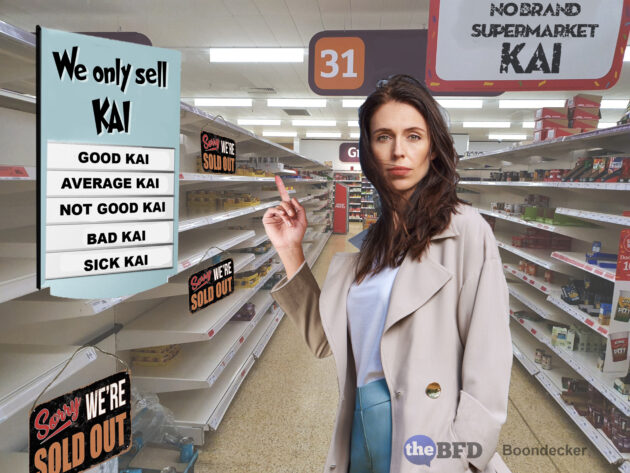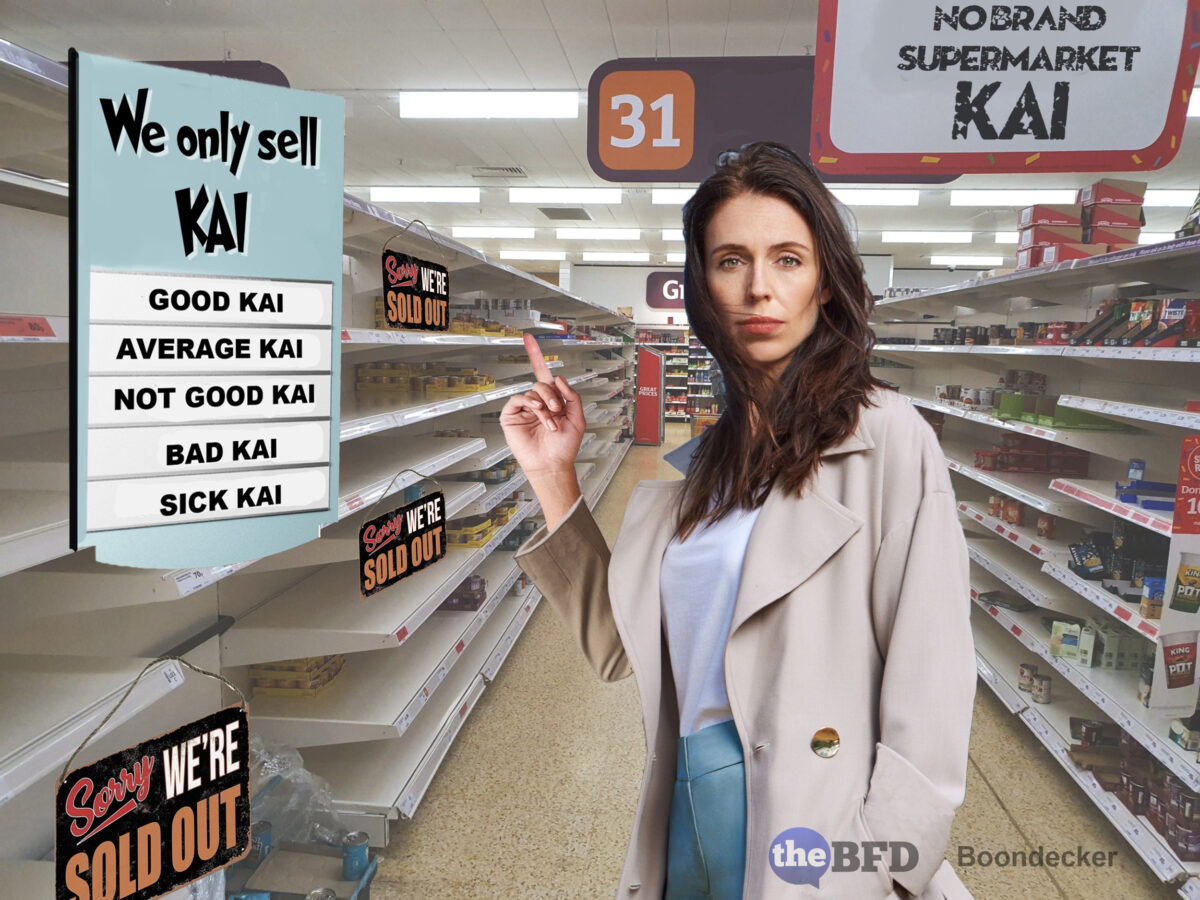Dr Bryce Edwards
democracyproject.nz
Dr Bryce Edwards is Political Analyst in Residence at Victoria University of Wellington. He is the director of the Democracy Project.
Many commentators are drawing parallels between the state of the supermarkets and how the Telecom monopoly was broken up in the mid-2000s. For the best argument in this regard, see Ernie Newman’s column, Supermarkets – the Telecom parallel (paywalled).
Newman, who was once the head of the Technology Users Association of NZ, and now advises the Food and Grocery Council, is emphatic about the need for a break-up being forced on the supermarkets, starting his column like this:
“Like cracking open an egg and finding it rotten, the Commerce Commission has exposed in one dramatic report the ugly reality of market power abuse in our supermarket sector.”
He argues that the split up of Telecom and major reforms to the telecommunications market quickly brought about huge benefits for the consumer, and the same can happen with groceries:
“So can consumers, and grocery suppliers, expect a similar outcome from this action against supermarkets? Emphatically yes. The core problem is the same – blatant abuse of extreme market power. The detail is different, but arguably less challenging in the distribution sector which is about trucks and real estate, unlike the technology sector grappling with massive and continual technological changes.”
However, business journalist Bernard Hickey is much less sure. He says the Commerce Commission report is “a detailed, meticulous and cracking read” but dissents from the growing chorus who suggest big structural reforms could be easily implemented – see: Don’t bet on a breakup.
Here’s Hickey’s main point:
“Unlike Telecom, which was a locally-listed and a former state-owned network monopoly that could be relatively easily broken in two with legislation, a share split and a couple of minor regulatory tweaks, the two supermarket chains’ ownership structures (two cooperatives with individually owned supermarkets and an Australian-owned corporate) mean they would both be fiendishly complicated to unravel and replicate with legislation and simple corporate action.”
Land reform to help new supermarket rivals
One of Hickey’s preferred fixes involves helping foreign chains enter the market with “accelerated RMA help for [property] sites or overseas investment exemptions, which should be expedited.”
This is because the Commerce Commission report shines a light on the problem for new supermarket companies face acquiring property for stores. Suitable land is hard to get, and this is partly due to a lot of council and resource management rules and processes, but also because of strategic actions by the existing grocery companies in blocking site availability. This is all explored in Dileepa Fonseka’s Pulling out all the stops to get a new supermarket player into the market.
For more on this, see Eric Crampton’s Why it’s hard to open a supermarket in NZ. He explains that a lot of suitable sites for new supermarkets have contracts that prevent them being used for this purpose:
“Existing supermarkets either own those sites already, or previously owned them and sold them off with encumbrances on the title restricting any future owner against using the site as a supermarket, or the site is part of an existing shopping centre where the supermarket has an exclusivity restriction.”
See also, Crampton’s column, KiwiGrocer is a classic Catch-22.

KiwiShop: “Where everyone is at the front of the queue”
Probably the most contentious and interesting reform option put forward by the Commerce Commission is the government establishment of a supermarket chain. Max Rashbrooke comments on this, saying “Though I can’t see the state running a supermarket well in the long term, this could be the short-term circuit breaker we need. The risks would require careful assessment, but the benefits to consumers and suppliers would probably be substantial.”
For a much more enthusiastic embrace of this idea, see Martyn Bradbury’s Why we urgently need a State owned supermarket.
The way that such a “KiwiShop” would operate is sketched out further today by marketing specialist Associate Professor Mike Lee of the University of Auckland, who says that such an idea could be as successful as KiwiBank, but operating more as a not-for-profit public service – see: Subsidies not soft drinks: The brave new world of Kiwishop (paywalled).
He argues that when the market fails, the government needs to enter:
“Governments need to step in when systems fail, or when the profit incentive of the major players result in poor levels of wellbeing for the population. That’s why governments get involved in public housing, public transport, public education, and public health. So why not try public retailing?”
Lee envisages a KiwiShop that employs welfare beneficiaries, trains them up, prioritises the sale of New Zealand goods, and doesn’t sell harmful products (such as cigarettes and soft drinks).
In contrast, Herald business commentator Kate MacNamara says the KiwiShop-type idea is “risible”:
“For one thing, it conjures alarming visions of the Prime Minister’s chiding hand on your supermarket trolley steering it firmly away from the biscuit aisle (renamed ‘occasional treats’ and cordoned off before mid-afternoon)”
– see: The problem of supermarkets’ power and Government’s attitude to competition (paywalled).
Chris Trotter says it’s not going to happen anyhow. He says that David Clark and his colleagues are allergic to such “democratic socialist” ideas, which would be seen as too much of a threat to capitalism – see: The Sin of cheapness.
Finally, not everyone is convinced that the supermarket sector is even broken and in need of reform. Mike Hosking says that the “report found fault for no other reason than all reports find fault”, and the problems of the current market are because: “It’s not easy doing business at the bottom of the world with a small population and a weird geography” – see: Nothing will change from the supermarket inquiry.
This article can be republished under a Creative Commons CC BY-ND 4.0 license. Attributions should include a link to the Democracy Project.
Please share so others can discover The BFD.

